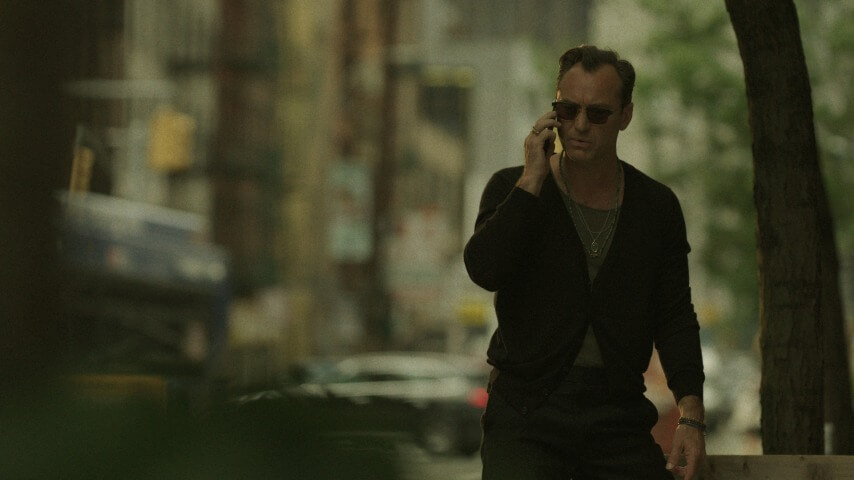Jude Law and Jason Bateman are trapped in Netflix's undercooked Black Rabbit
The actors make for a believable pair of brothers in an otherwise lackluster thriller.
Photo: Netflix
Black Rabbit simmers with potential, much like the fictional restaurant that gives the show its title. Jake (Jude Law) and Vince Friedken’s (Jason Bateman) dimly-lit, multi-story Lower Manhattan establishment was a space they once hoped to transform into a trendy hot spot, naming it after their failed indie-rock duo. That was before Vince’s substance and gambling addictions caused a fallout between them, with Jake now managing their beloved business solo. But their project is in jeopardy because the siblings keep getting pulled in confounding, disparate directions. A similar problem plagues the show, which meanders through multiple undercooked storylines. The premiere starts strong, with two masked gunmen robbing Black Rabbit on a busy, big night. As they hold hostages and snatch expensive jewelry, the miniseries sets up some intriguing suspense about who’s targeting a shrewd, smooth-talking Jake and why. The narrative then goes back to a month to when a reckless Vince rolls into town, bringing his usual brand of dangerous chaos with him.
Upon his return, Vince schemes to repay a heavy loan he took from a menacing mob leader (played by Troy Kotsur), putting his unsuspecting, estranged daughter in danger. Meanwhile, Jake seeks to expand his restaurant portfolio no matter what it costs him personally or professionally. And as they’ve always done, the brothers pull each other into their respective messes, and things get bleak. On paper, Black Rabbit sounds like a propulsive ride full of toxic family drama, dark secrets, troubling workplace dynamics, kooky mobsters, and wealthy scum. It’s too bad the execution is so oddly lackluster. The early sheen of this wannabe edgy and prestige drama fades during a bloated run before picking up a little steam again at the end. The eight episodes crawl because the series gets lost in hefty, convoluted ideas about addiction, ambition, and the sacrifices people make to help their loved ones.
A look into Jake and Vince (and their co-dependent, childhood trauma-defined relationship) is set against the backdrop of various New York City landmarks, which are coolly captured by directors Bateman, Laura Linney, Ben Semanoff, and Justin Kurzel. The latter collaborated with series co-creators Zach Baylin and Kate Sussman on 2024’s The Order, and his creative vision elevates Black Rabbit‘s last two installments. (The scenes set in Coney Island, where the Friedken siblings grew up, look particularly great.) Still, stylish flair behind the camera and appropriately gritty production design from True Detective‘s Alex DiGerlando don’t make up for exhausting tonal changes like switching from Uncut Gems-esque anxiety to melodrama. The series feels made for an audience that devoured Bateman and Linney’s previous Netflix hit, Ozark, but falls more in line with the streamer’s recent bland efforts like Untamed and The Waterfront.
 Keep scrolling for more great stories.
Keep scrolling for more great stories.
